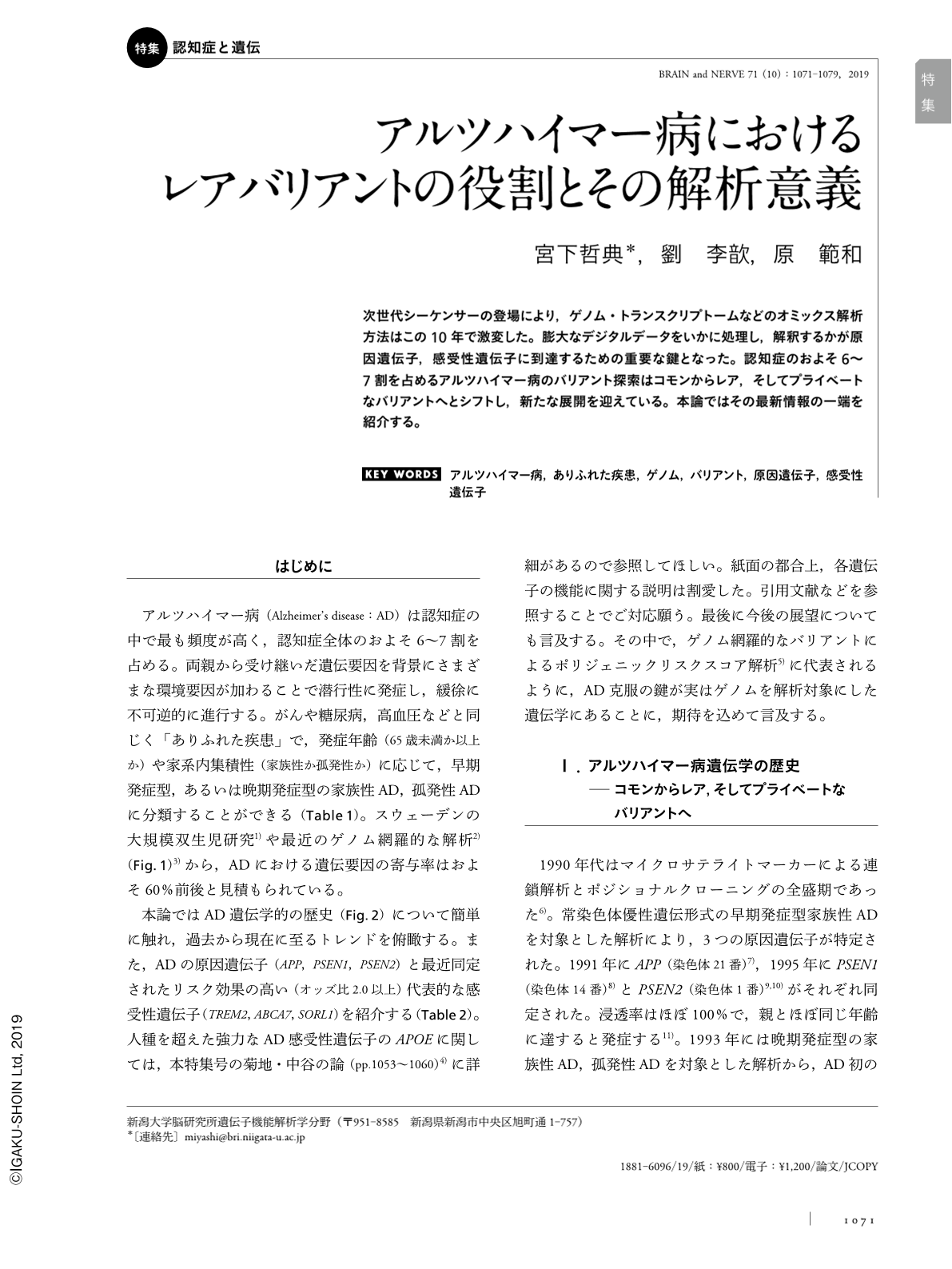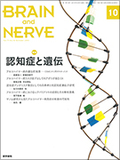Japanese
English
- 有料閲覧
- Abstract 文献概要
- 1ページ目 Look Inside
- 参考文献 Reference
次世代シーケンサーの登場により,ゲノム・トランスクリプトームなどのオミックス解析方法はこの10年で激変した。膨大なデジタルデータをいかに処理し,解釈するかが原因遺伝子,感受性遺伝子に到達するための重要な鍵となった。認知症のおよそ6〜7割を占めるアルツハイマー病のバリアント探索はコモンからレア,そしてプライベートなバリアントへとシフトし,新たな展開を迎えている。本論ではその最新情報の一端を紹介する。
Abstract
Next generation sequencing (NGS) technology has dramatically influenced the field of omics studies, such as genomics and transcriptomics. It is now possible to access a significant number of previously known and novel genomic variants through NGS. Although the effective manipulation and accurate interpretation of the inordinate amount of data may pose a considerable challenge, it enables us to identify specific genes responsible for causing or influencing the susceptibility to a plethora of diseases. Alzheimer's disease (AD) is the most common etiology of dementia in the elderly (approximately 60-70%). The current research trend of AD genetics focuses on the analysis of rare variants (allelic frequency <1%) instead of common variants (allelic frequency >1%) to identify AD-associated genes/variants. A number of genes (such as TREM2, ABCA7, SORL1) that carry rare pathogenic variants have reportedly conferred susceptibility to AD with stronger genetic risk effects (odds ratio >2.0). Here, we are going to introduce a small part of the latest many attractive findings about AD genetic researches.

Copyright © 2019, Igaku-Shoin Ltd. All rights reserved.


